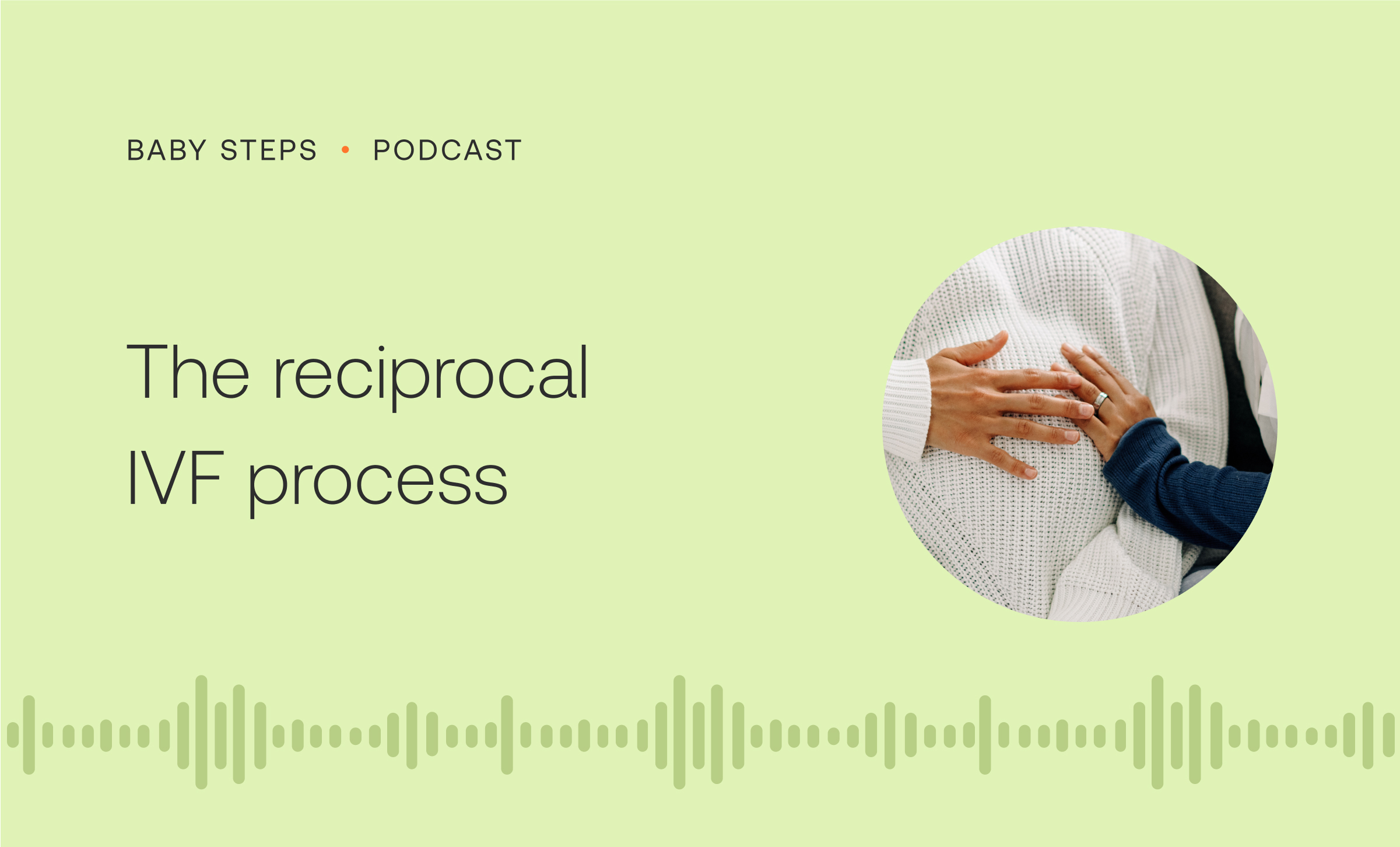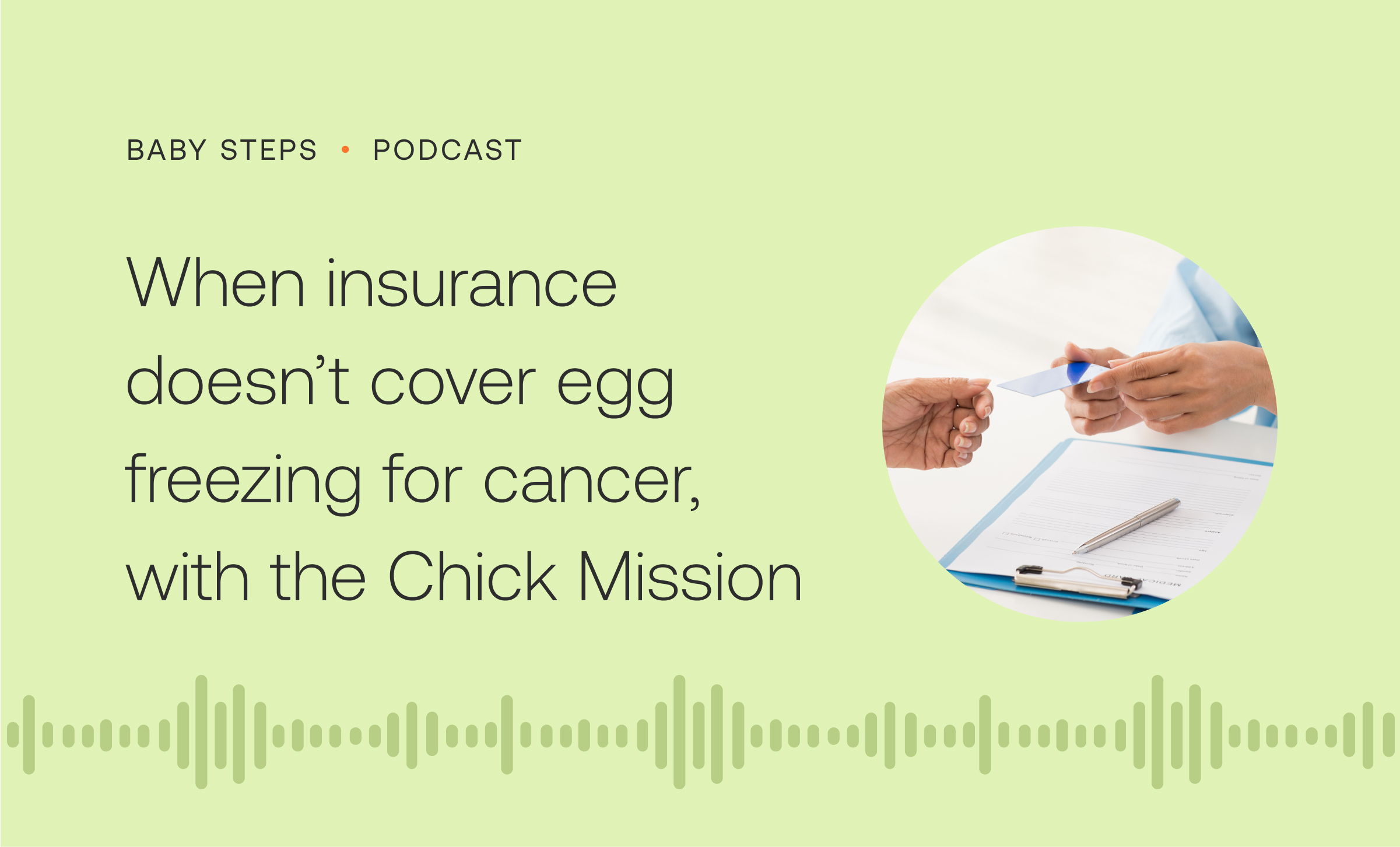Many people are surprised to learn that getting pregnant isn’t always easy. If you’ve been trying for a few months and you’re starting to wonder why it hasn’t happened yet, tracking your fertility can help increase your chances.
There are only a few days per month when it’s possible to get pregnant — if you have sex on a day outside of this fertile window, you will not get pregnant. There are a variety of tools (apps, fertility calendars, ovulation calculators, and ovulation tests) that promise to pinpoint your fertile window — and many myths and misconceptions about the proper way to use them. In this article, we’ll go over the most common misconceptions about fertility tracking and help you understand how to avoid them.
Misconception #1: To get pregnant, you should have sex right when you’re ovulating
Contrary to popular belief, having sex just at the time of ovulation is not the best timing if you’re trying to get pregnant. It’s best to think of ovulation as the end of your fertile window — not the only day to get pregnant, but your last chance to try that cycle. If trying to get pregnant, look at your entire fertile window of the five days before ovulation, including the day of ovulation. If having intercourse on each of these days is not possible, focus your attention on the 2 – 3 days before expected ovulation, including the day of ovulation.
Misconception #2: Your period tracking app knows when you ovulate
Cycle tracking methods are only as good as the data you give them. Since period tracker apps only use the dates of your period and no other data from your body, they’re not always accurate.
Period tracking apps work by estimating when you ovulate based on your average cycle length. These apps operate using the calendar method, which assumes that ovulation occurs 14 days before your next cycle begins. So if you tell the app that your average cycle length is 30 days, the app will always predict ovulation on day 16.
That may not be a problem for someone who has a perfect 30-day cycle every single month. But for someone with irregular cycles, where you can skip months at a time, or even cycles that are not the same exact number of days every single month, apps that base predictions on a consistent average will not be able to provide accurate predictions. And even for those who usually have perfectly consistent cycles, app predictions still may not be correct. That’s because tracker apps assume a consistent 14 days between ovulation and the next period. But this length of time — called the luteal phase — can vary between 10 to 16 days. If you have an 11-day luteal phase but your tracking app assumes 14 days, your fertility prediction will be off by three days.
Misconception #3: LH tests tell you your most fertile days
At-home ovulation tests are typically urine tests that help you track your fertile days. They are also called ovulation predictor kits, OPKs, or LH tests. These tests detect the presence of luteinizing hormone (LH) in your urine, which is a sign that you might be close to ovulating.
Using these tests can help you time intercourse around your fertile window. When you get a positive ovulation test, it’s a sign that you are likely fertile. But LH tests may not always detect your most fertile days, which includes days that may fall before the ovulation test turns positive.
Ovulation occurs an average of 24 hours after the LH surge first begins, though this time can be shorter or longer for some people. Also, keep in mind that urine LH tests and timing of ovulation are different than checking LH in your blood. LH will be found in your blood hours before it will be seen in the urine. The best days to get pregnant are the two to three days before ovulation — multiple studies have shown that having sex on these days carries even higher chances of pregnancy than having sex only on the day of ovulation.
This means that if you wait for a positive ovulation test to have intercourse, you might be missing out on some of the most fertile days of your cycle. It’s best to think of the LH surge as the beginning of the end of your fertile window.
Misconception #4: LH tests “confirm” ovulation
Think of the LH surge as a sign that your body is preparing for ovulation. Ovulation usually follows the LH surge, but having an LH surge is not an absolute guarantee that ovulation will occur.
To confirm that ovulation occurred, you would need to observe an increase in progesterone levels. This can be done with a blood test, urine test, or by tracking basal body temperature, your body temperature at rest. The presence of progesterone causes your basal body temperature to increase.
There are several reasons why you would have an LH surge but not ovulate:
- Polycystic ovary syndrome (PCOS): People with this condition sometimes have elevated LH levels throughout the menstrual cycle
- Other hormonal imbalances: Some conditions can also lead to the situation where an elevated LH is not followed by ovulation. For example, some individuals with severe diminished ovarian reserve (DOR) or primary ovarian insufficiency (POI) may have elevated FSH and LH levels and this may not indicate impending ovulation.
Misconception #5: You’re still fertile the day after ovulation
The fertile window begins five days before ovulation and ends on the day of ovulation. The reason for this has to do with the respective lifespans of sperm and egg. Sperm can survive for up to five days when fertile cervical mucus is present. The egg survives for only about 12 – 24 hours after it is released. A full day after ovulation, the egg is no longer viable.
Of course, there is usually some degree of uncertainty around exactly when you ovulated. This is why having sex the day after you believed you ovulated is a good insurance policy, in case your initial estimation was incorrect.
But if you’re trying to get pregnant, you should prioritize having sex during the two to three days before you expect to ovulate, including the day of ovulation — that’s when your chances of getting pregnant are highest.
Resources for Carrot members
While we’ve addressed the most common misconceptions about fertility tracking, we know that there’s so much to learn about your fertility if you’re trying to get pregnant.
From resources for ovulation tracking, unlimited chats with our fertility experts including reproductive endocrinologists and urologists, and a vetted network of providers and clinics, we’re here to support you on your unique path to parenthood.
Have additional questions? Message a member of our Care Team through your Carrot account.












